When you’re launching a game, your timing is a crucial, as if you miss your ideal window by even just a few weeks, it could mean the difference between success and failure. We’ve already spoken about 10 games that launched with a less than ideal release date, but naturally there’s way more than 10 examples out there for us to choose from.
Like the previous list, these 10 games had to fight from underneath to deal with a crappy release date, whether that was because of stiff competition, they were overshadowed by another, totally unrelated game, or some extenuous world event. These are 10 more games that had stupid release dates.
1. Blur & Split/Second
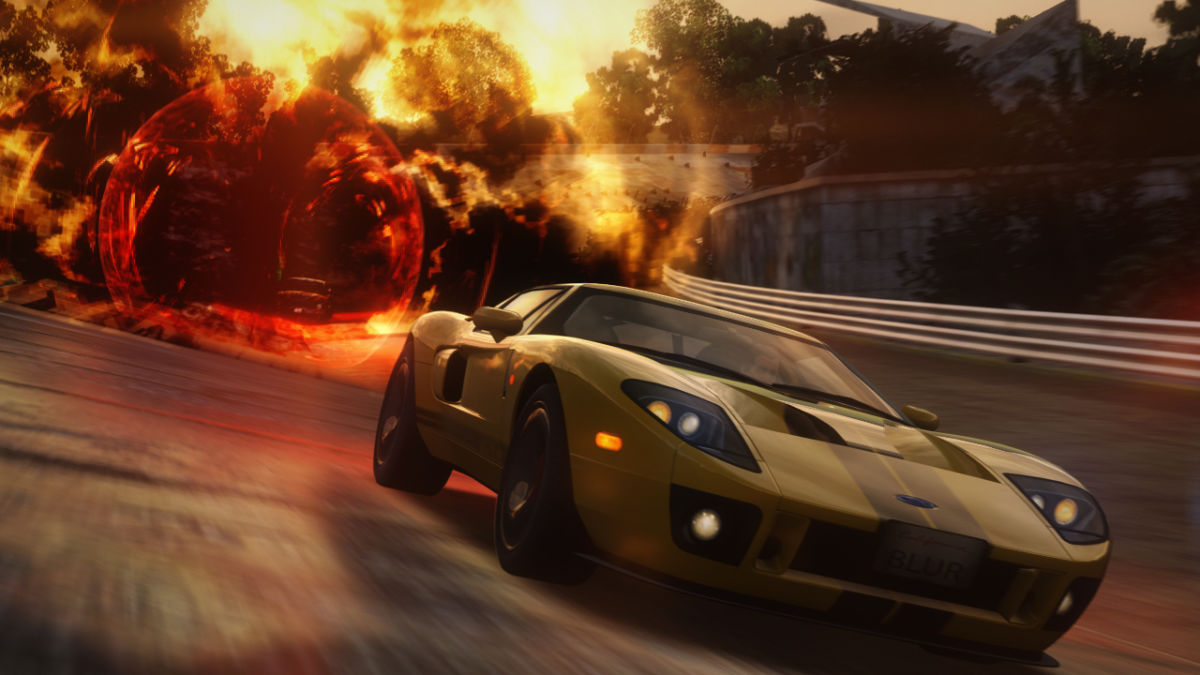
Normally when two games of a similar genre launch in close proximity to one another, there’s a winner and a loser. One goes on to achieve larger success, while the other languishes in the shadows. However, there have been a couple of rare instances of a double KO, where both games have tried to split the market too much, leaving both sides worse off. That would prove to be the case with Blur and Split/Second as both were incredibly fun arcade-esque racing games that unfortunately seemed to get in each other’s way.
Launching in May 2010 with just a week between both games, Split/Second and Blur were pretty different. Split/Second felt like a Michael Bay racing game, utilizing massive explosions and destruction to mess with your rivals, while Blur was Mario Kart with real cars in real locations. Both games would receive positive reviews from critics, but neither seemed to achieve any real groundswell of support with players, suffering disappointing sales as a result. Within a year, both Black Rock Studio and Bizarre Creations had been shut down. It’s a tragic one, honestly.
12. Beyond Good & Evil
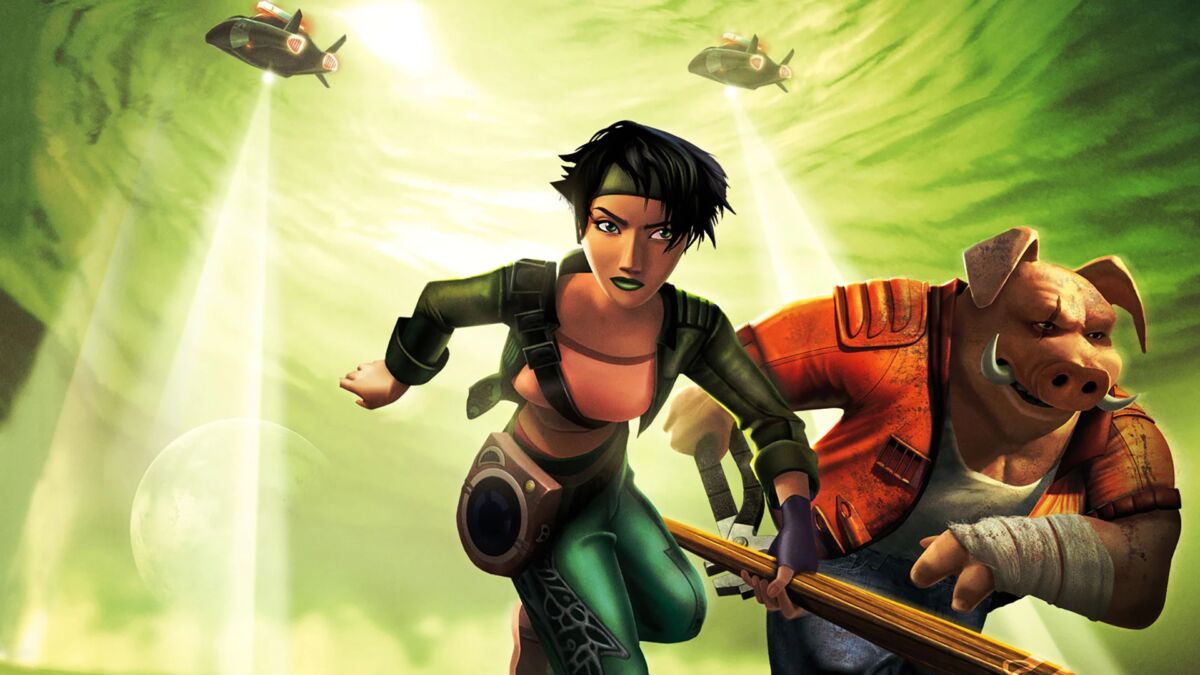
If you were a video game launching on the sixth generation of consoles, it was considered wise to be some kind of blend between platformer and action adventure game. As Grandpa Simpson so eloquently put it all those years ago: “it was the style at the time”. Naturally, Ubisoft’s Beyond Good & Evil followed a similar path, with those who played it back in 2003 finding an incredibly enjoyable action adventure game with a great story too. Throw in some stealth and a wee bit of political intrigue, and it’s no wonder that critics were raving about Beyond Good & Evil at launch.
Despite earning a bunch of awards after launch, sales weren’t really performing like Ubisoft wanted, and while that has been attributed to the fact that Ubisoft were too focused on Prince of Persia: The Sands of Time, the other fact is that Beyond Good & Evil launched in the middle of a packed holiday season. The aforementioned Prince Of Persia didn’t help matters, but throw in games like Jak 2, SSX 3, Ratchet & Clank: Going Commando and everyone’s favorite game, Final Fantasy X-2, it’s not surprising that Beyond Good & Evil got lost in the shuffle. At least we still have the definitely real sequel to look forward to, right guys?
3. War of the Roses

These days, if you want to get your hands on a medieval multiplayer game, there are two options: Mordhau and Chivalry 2. There’s probably other options as well, but those are your main ones. There could have been another, War Of The Roses, but like other entries on this list, it just so happened to be overshadowed on launch. Based on the real-life English conflict from the 15th Century between the House of Lancaster and the House of York, you’d control a customisable soldier and head into battle across a range of modes.
The gameplay itself leaned more towards realism, with damage determined by a series of precise hitboxes on both the weapon and character models. While the game launched to decent enough reviews, it felt like War of the Roses was immediately overshadowed by Chivalry: Medieval Warfare, which launched on PC merely two weeks later. From the tongue-in-cheek name referencing Call of Duty, to the silly voice lines and ridiculous levels of gore, Chivalry valued hilarity over history, and the public seemed to agree.
4. Enthusia Professional Racing

Cries of “huh?” and “what the hell is this game?” have probably already circulated in your mind upon reading the name of this entry, so here’s a quick history lesson. Enthusia Professional Racing was a sim racer from Konami that launched on PS2 in 2005. Like other sim racers, the object of Enthusia was to win races to unlock new cars, upgrade your existing cars and subsequently take on harder races. That was the theory anyway, but then Enthusia throws in some weird RPG systems like Enthu Points and having to manage your driver’s HP between races, or be forced to skip a race entirely.
Enthusia Professional Racing’s weird take on simulation racing might have played a key role in its obscurity, but there’s no denying the fact that simulation racers were a crowded market on the PS2. Coming out in the West around May 2005, Gran Turismo 4 had already launched two months before Enthusia would become available in North America and Europe, while the PS2 also played host to other sim racers like the TOCA Race Driver series. Meanwhile, over on the Xbox, a little game called Forza Motorsport was laying the groundwork for a new sim racer franchise to flourish. Poor Enthusia couldn’t even make it to the starting line.
5. Rayman Origins
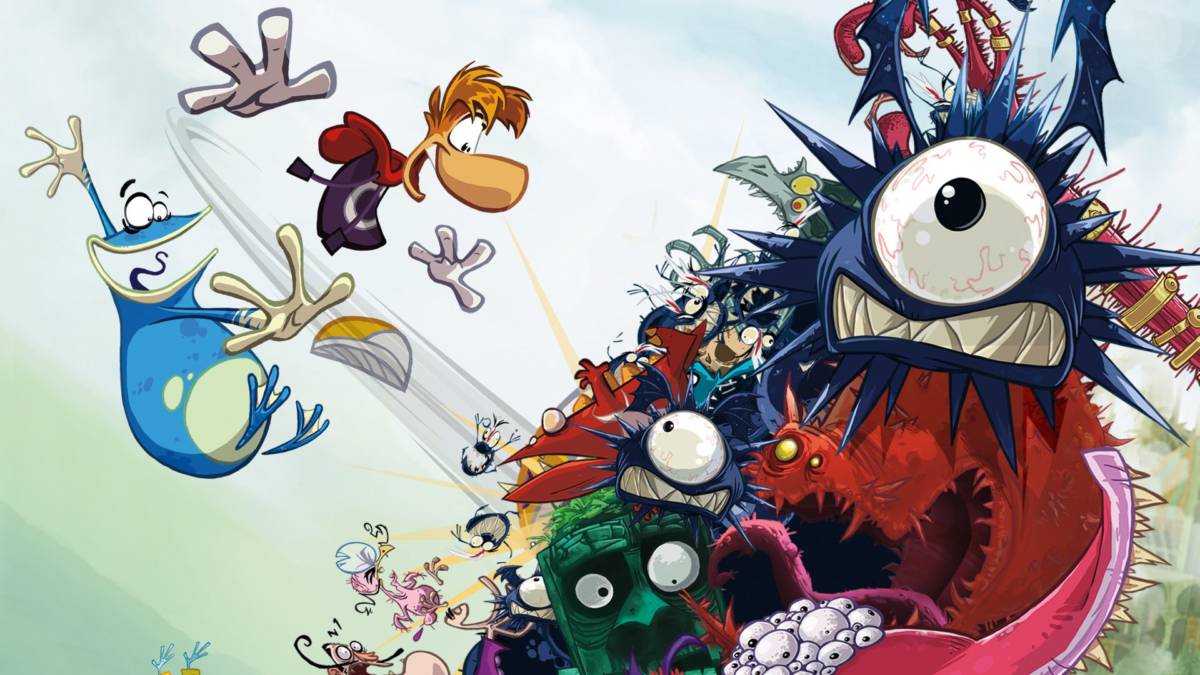
Launching a game in the fourth quarter of any year can be a risky business, as we’ve already established in other entries on this list. If you’re aiming for a November release date, you better be a GOTY contender, or you’re getting lost in the shuffle, and even then you’re not entirely safe. Just look at Rayman Origins, a game that could be considered among the best platformers ever made (until Rayman Legends improved on it even further), but because it launched in November 2011 during a real murderer’s row of games, it got lost in the shuffle somewhat.
Looking back at November 2011’s release schedule, we could just point to one reason in particular why Rayman didn’t sell huge numbers — everyone was looking forward to The Elder Scrolls V: Skyrim instead. Beyond that, November 2011 saw the release of games like Sonic Generations, meaning Rayman couldn’t even have the platforming genre all to itself, while the release of Assassin’s Creed: Revelations likely saw the bulk of Ubisoft’s marketing budget. You know what they say about those who fail to learn from history.
6. Dragon’s Dogma
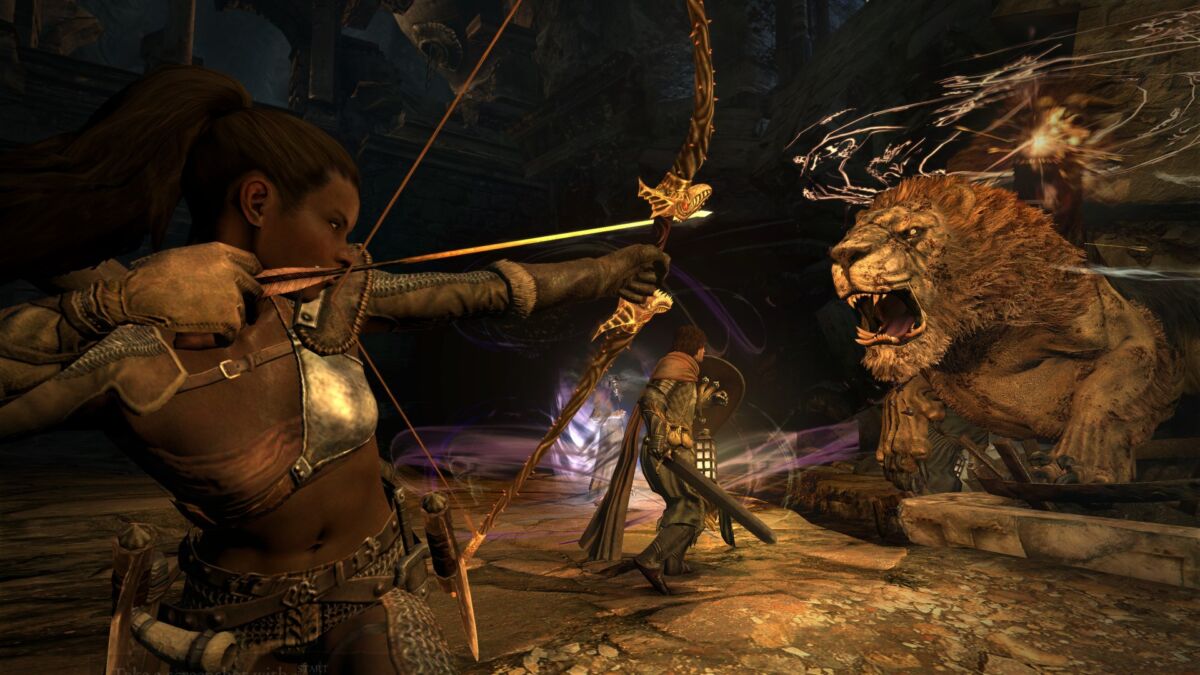
Speaking of The Elder Scrolls V: Skyrim, Bethesda’s open world fantasy game might have done a number on an entire genre for a while there, as for a few months, it felt like any game that was vaguely rooted in fantasy had to be compared to a game that’s been released on every platform under the sun at this point. It didn’t matter if the gameplay or story is completely different from what Skyrim had to offer, as games like Dragon’s Dogma were rejected by a lot of players for being sort of similar to Skyrim but also not similar enough.
In the case of Dragon’s Dogma, Capcom’s RPG was clearly aiming for a more hardcore experience akin to Bethesda’s earlier efforts like Morrowind, asking much more of the player’s attention. The game did generate a cult following, thanks to its unique combat and overall design, and Dragon’s Dogma has been fully redeemed by its highly beloved sequel, even if the microtransactions have caused a bunch of controversy. Still, it definitely struggled to find its way out from Skyrim’s shadow initially.
7. Kingdoms of Amalur: Reckoning
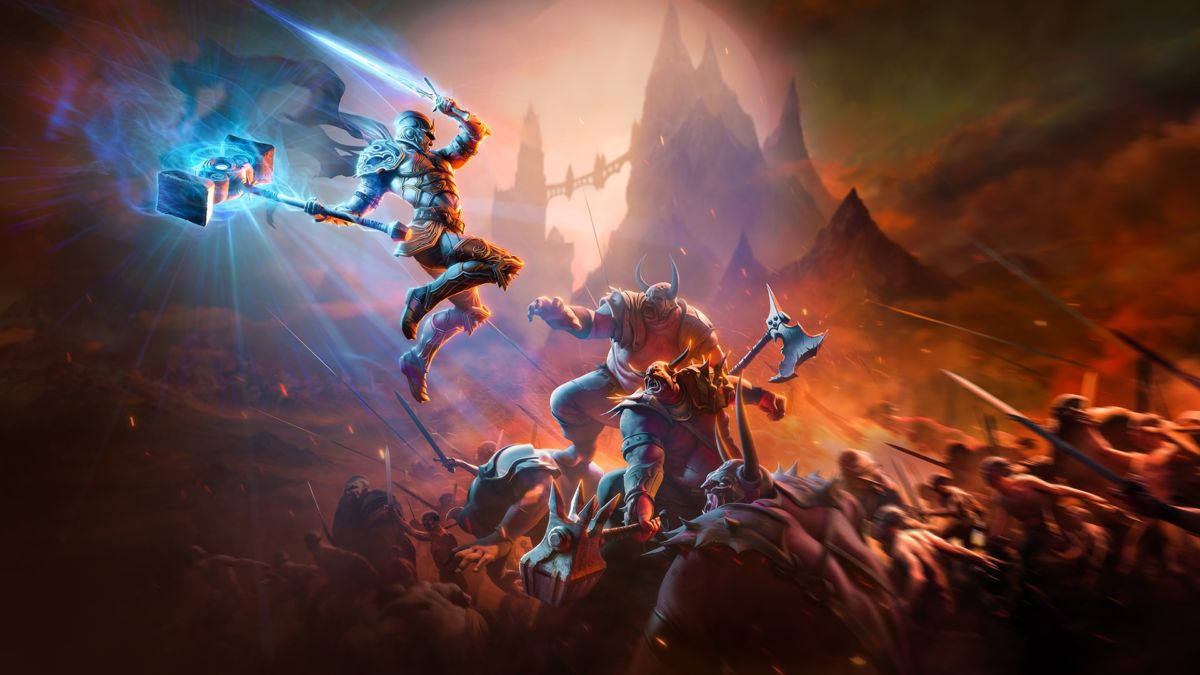
Another fantasy game that released around the same time as Dragon’s Dogma, Kingdoms of Amalur was a bit more of a flop, though that had more to do with internal issues at publisher 38 Studios than anything else. That’s a whole other story though, and while internal issues at the game’s publisher have been cited as the main reason why Kingdoms of Amalur: Reckoning struggled when it was released, it’s hard to deny the fact that releasing after Skyrim did KoA no favors at all.
As an action RPG, Kingdoms of Amalur was certainly an enjoyable, if unoriginal romp through a fantasy land, and there’s certainly a fanbase for Amular since its release on PC, PS3 and Xbox 360. The Re-Reckoning update has also introduced the game to new audiences, but again, an unoriginal action RPG releasing not long after Skyrim meant that Kingdoms of Amalur wasn’t going to fully succeed. It did well, but not well enough.
8. Nearly Every PS1 RPG Post-Final Fantasy 7
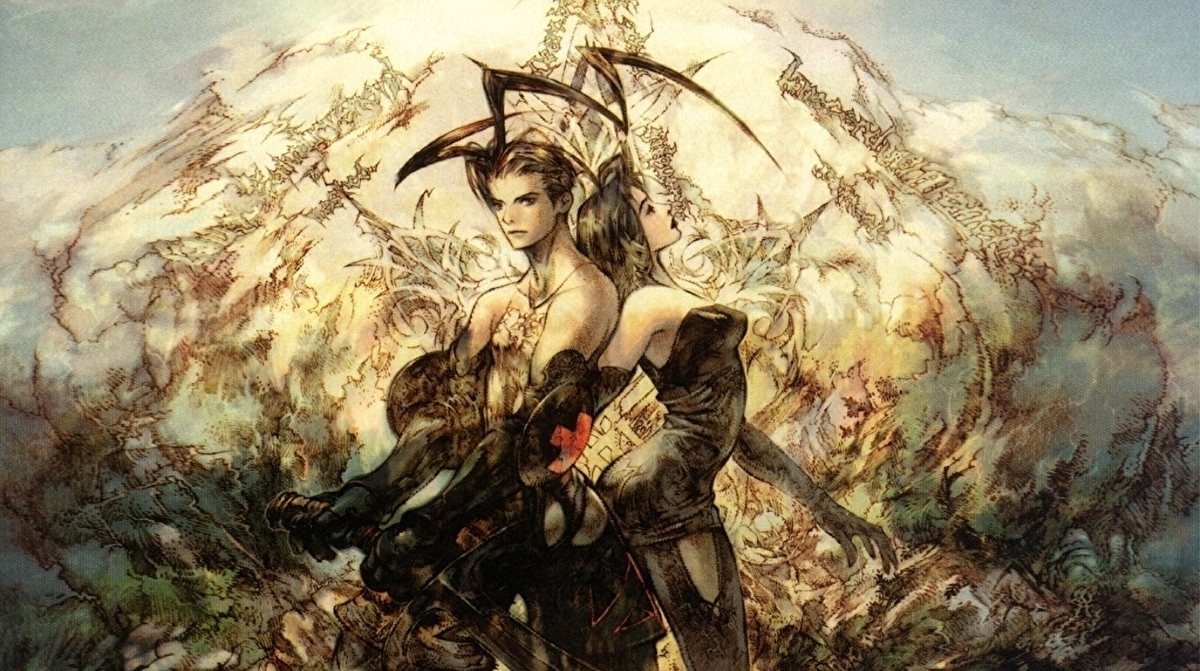
We’ve spoken before in other lists about how the RPG library for the PS1 has almost gone unmatched in the years since, and while there’s plenty of cult classics and hidden gems to find in that vast pile of games, there’s a reason why they’re all hidden gems: Final Fantasy 7. Having launched in January of 1997, Square basically nailed the RPG formula before the PS1 was even halfway into its lifecycle, leaving every other RPG that followed on from that epic to try and do better. Most could only hope to be half as successful. Unless that RPG was another Final Fantasy game. Those still sold like gangbusters.
Listing every single RPG that launched after Final Fantasy 7 would keep us here all day, so let’s just focus on some of the bigger names that came out in FF7’s wake: Parasite Eve, Xenogears, Brave Fencer Musashi, Jade Cocoon, Legend of Legaia, Grandia and Vagrant Story are just some of the examples of cult classics obscured by Final Fantasy 7’s groundbreaking success. A lot of these RPGs have since been regarded as top tier games, thanks to the work of re-releases, emulators and content creators talking about classic games, but there’s no denying that FF7 was a tough act to follow.
9. Advance Wars
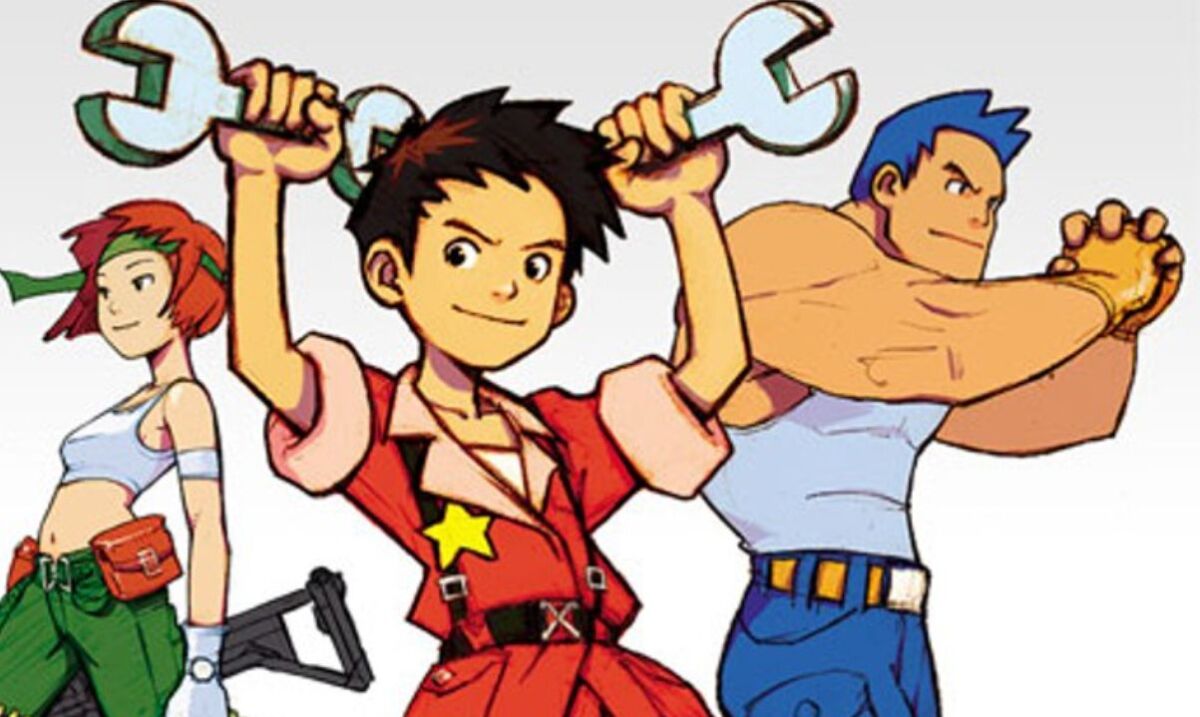
Hoo, boy.
Advance Wars as a series just hasn’t had the best of luck when it comes to releasing in close proximity to real world events, with said events affecting the game as a whole. The most notable example of this is the original Advance Wars, which launched on the Game Boy Advance in America on September 10th, 2001. You know, a day before one of the biggest terrorist attacks on American soil in history. Kinda hard to find the motivation to pick up your Game Boy and start some wars after an event like that, to be honest.
Because of 9/11, the release of Advance Wars in Europe was pushed back to January 2002, stifling any momentum the game could have had, and while there’s been a few Advance Wars sequels over the years, there’s no escaping the fact that it stumbled out of the starting block through no fault of its own. If that wasn’t bad enough though, the release of Advance Wars 1+2: Re-Boot Camp on the Nintendo Switch was also delayed massively because of the still ongoing war between Ukraine and Russia. At this point, if Nintendo announces a new Advance Wars game, expect the nukes to start flying in real life.
10. Shantae
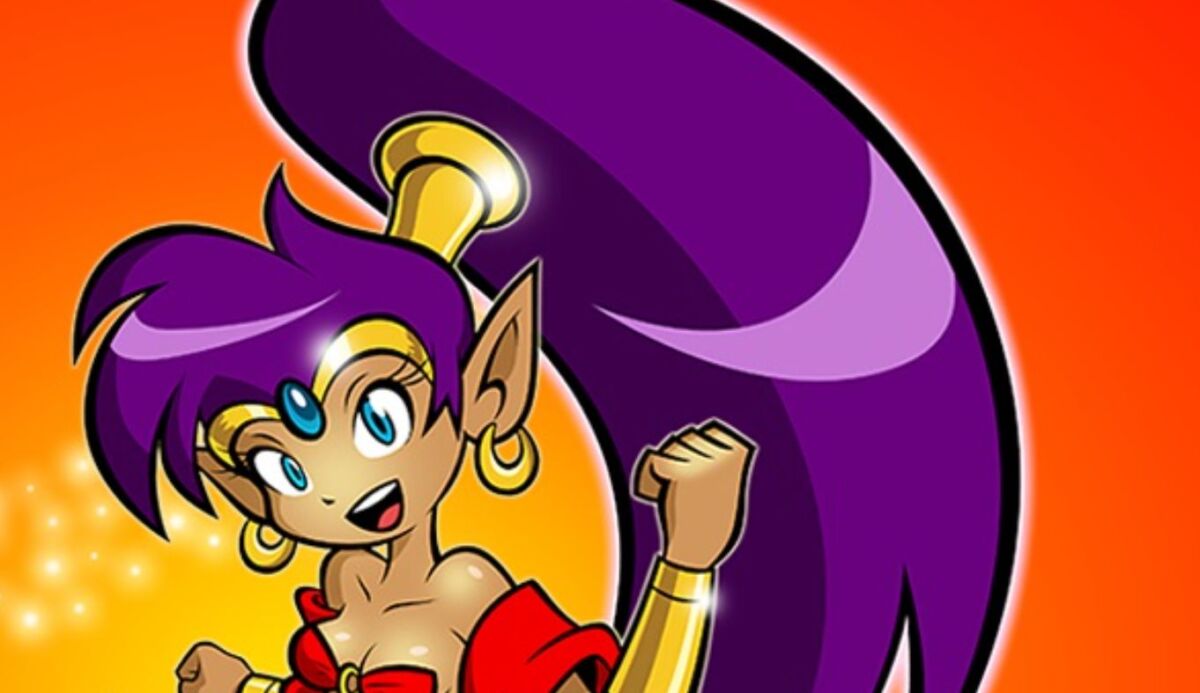
It’s always great to see a video game franchise actually succeed when it’s given the chance to. Shantae is a huge example of this phenomenon, as the original game in the series was only released for the Game Boy Color in 2002, when the Game Boy Advance was well into its first year of life. There’s been multiple other games like this which have been released on last generation platforms about a year too late, with Borderlands: The Pre-Sequel being another odd instance of that.
What makes Shantae’s release all the more baffling though is that publisher Capcom only picked up the game when it was 95% complete, and according to WayForward founder Matt Bozon, Capcom held on to the finished product for 8 months before releasing it. To Matt’s credit though, he’s always blamed Shantae’s “iconoclastic” nature as the reason why the original game didn’t properly succeed, though the years since and multiple sequels have shown that there’s always been a place for Shantae.
Some of the coverage you find on Cultured Vultures contains affiliate links, which provide us with small commissions based on purchases made from visiting our site.



